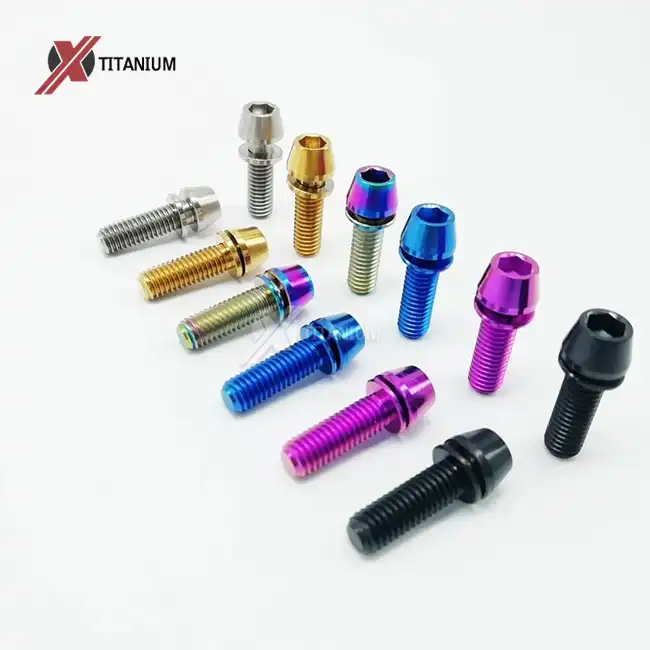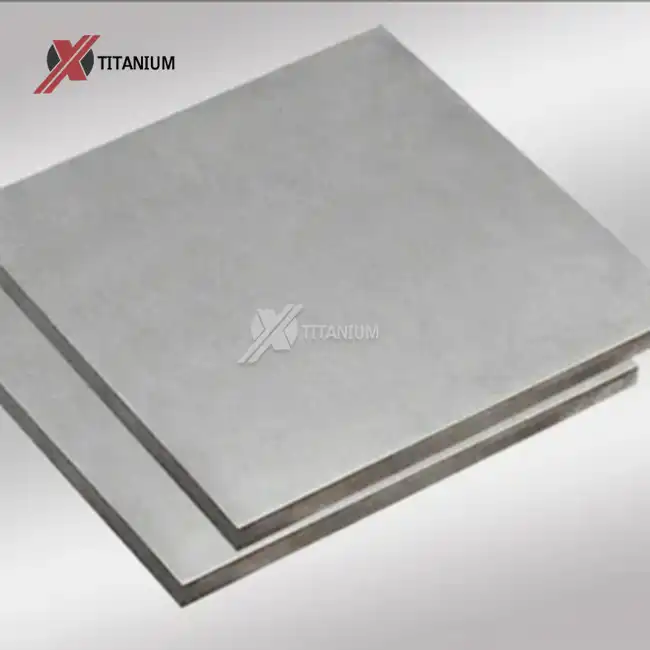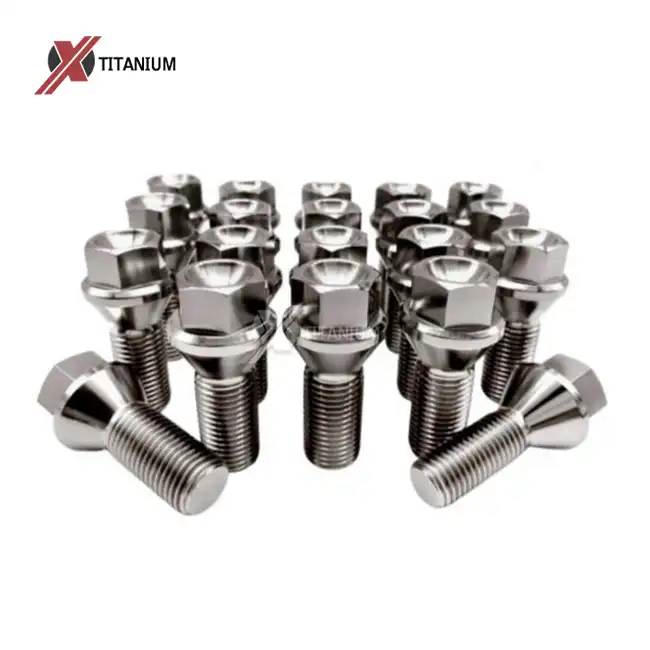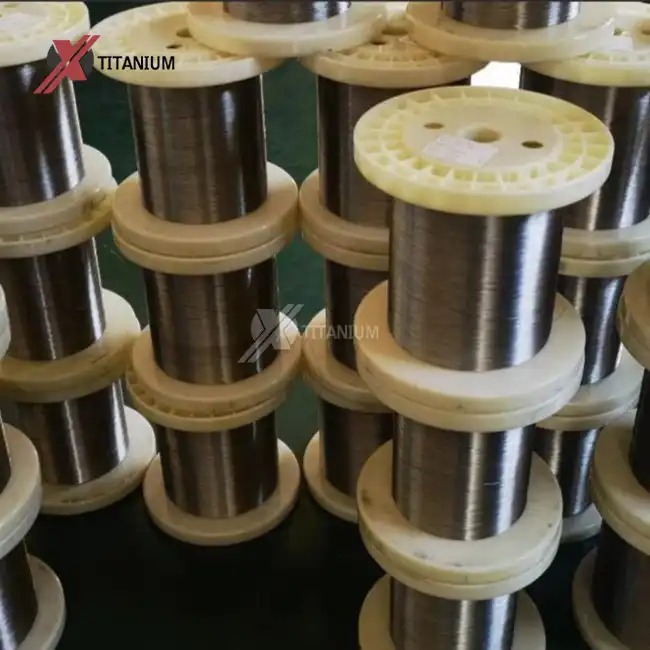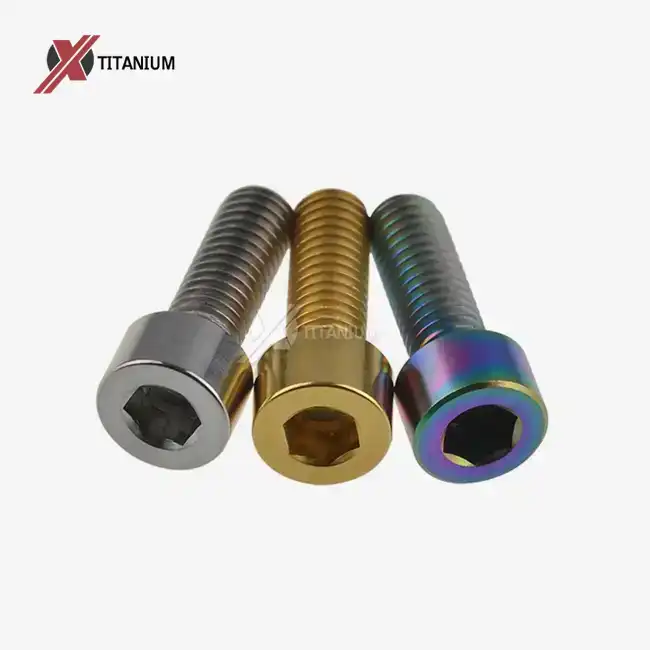The Unique Properties of Titanium Alloy Screws
Exceptional Strength-to-Weight Ratio
Titanium alloy screws boast an impressive strength-to-weight ratio, setting them apart from traditional fasteners. This characteristic is particularly advantageous in applications where weight reduction is crucial without compromising structural integrity. The Ti-6Al-4V alloy, commonly used in these screws, exhibits a tensile strength of up to 900 MPa while maintaining a density of only 4.43 g/cm³. This combination allows engineers to design lighter yet equally robust structures, leading to enhanced performance in various sectors.
Corrosion Resistance and Durability
One of the standout features of titanium alloy screws is their exceptional resistance to corrosion. Unlike steel fasteners that may rust or degrade in harsh environments, titanium alloys form a protective oxide layer when exposed to air or moisture. This self-healing property ensures that titanium screws maintain their integrity even in saltwater, acidic, or alkaline conditions. The durability of these fasteners translates to longer service life, reduced maintenance requirements, and improved reliability in critical applications.
Biocompatibility and Thermal Properties
Titanium alloy screws possess unique biocompatibility, making them ideal for medical implants and devices. The human body readily accepts titanium, reducing the risk of rejection or adverse reactions. This property has revolutionized orthopedic and dental procedures, allowing for long-lasting and safe implant solutions. Additionally, titanium alloys exhibit low thermal conductivity, which can be beneficial in applications where heat transfer needs to be minimized. This characteristic, combined with their high temperature resistance (up to 500°C for some alloys), makes titanium screws suitable for use in extreme thermal environments.
Applications and Efficiency Gains
Aerospace Industry
The aerospace sector has embraced titanium alloy screws to achieve significant efficiency improvements. By utilizing these lightweight fasteners in aircraft construction, manufacturers can reduce the overall weight of the vehicle. This weight reduction directly translates to fuel savings, increased payload capacity, and extended flight ranges. For example, replacing steel fasteners with titanium alloy screws in an aircraft's fuselage can result in hundreds of kilograms of weight savings, leading to substantial fuel efficiency gains over the aircraft's lifetime.
Automotive Engineering
In the automotive industry, the use of titanium alloy screws contributes to the ongoing efforts to improve fuel efficiency and reduce emissions. High-performance vehicles and racing cars particularly benefit from the weight reduction offered by these fasteners. The implementation of titanium screws in engine components, suspension systems, and body panels not only reduces overall vehicle weight but also enhances performance by lowering unsprung mass. This results in improved handling, acceleration, and fuel economy, giving manufacturers a competitive edge in both consumer and racing markets.
Medical and Dental Applications
The medical field has witnessed remarkable efficiency gains through the adoption of titanium alloy screws. In orthopedic surgeries, these lightweight fasteners provide strong fixation while minimizing patient discomfort and recovery time. The biocompatibility of titanium allows for better integration with bone tissue, reducing the risk of complications and improving long-term outcomes. Dental implants utilizing titanium screws have revolutionized prosthodontics, offering patients durable and natural-feeling tooth replacements. The efficiency improvements in these medical applications extend beyond the operating room, enhancing patient quality of life and reducing the need for revision surgeries.
Manufacturing and Installation Efficiencies
Streamlined Production Processes
The manufacturing of titanium alloy screws has become increasingly efficient with advancements in material science and production technologies. Computer Numerical Control (CNC) machining allows for precise and consistent production of these fasteners, ensuring high quality and tight tolerances. The ability to create custom sizes and thread patterns, from M2 to M36, provides flexibility in design and application. Furthermore, the durability of titanium alloys reduces tool wear during manufacturing, leading to longer production runs and decreased downtime for equipment maintenance.
Improved Installation Techniques
The lightweight nature of titanium alloy screws contributes to improved installation efficiency. Workers experience less fatigue when handling and installing these fasteners, especially in large-scale projects or repetitive assembly tasks. The reduced weight also allows for easier maneuverability in tight spaces or awkward positions, common in aerospace and automotive assembly lines. Additionally, the corrosion resistance of titanium screws eliminates the need for protective coatings or treatments, simplifying the installation process and reducing overall assembly time.
Long-term Maintenance Benefits
Efficiency gains from titanium alloy screws extend well beyond the initial installation. The exceptional durability and corrosion resistance of these fasteners significantly reduce the need for replacement or maintenance over time. In marine environments, where traditional fasteners may quickly deteriorate, titanium screws maintain their integrity, minimizing costly repairs and downtime. This longevity is particularly valuable in critical infrastructure projects, where the cost of maintenance and the impact of failures can be substantial. By choosing titanium alloy screws, industries can achieve long-term operational efficiencies and reduced lifecycle costs.
Conclusion
The adoption of lightweight titanium alloy screws has ushered in a new era of efficiency across various industries. From aerospace and automotive to medical and marine applications, these innovative fasteners offer a compelling combination of strength, durability, and weight reduction. The unique properties of titanium alloys, including their exceptional strength-to-weight ratio, corrosion resistance, and biocompatibility, make them ideal for demanding applications where performance and reliability are paramount.
As industries continue to push the boundaries of efficiency and performance, titanium alloy screws will undoubtedly play a crucial role in shaping the future of engineering and manufacturing. For more information on titanium alloy screws and how they can improve efficiency in your specific application, please contact Baoji Chuanglian New Metal Material Co., Ltd. at info@cltifastener.com or djy6580@aliyun.com. Our team of experts is ready to assist you in finding the perfect titanium fastener solution for your needs.
